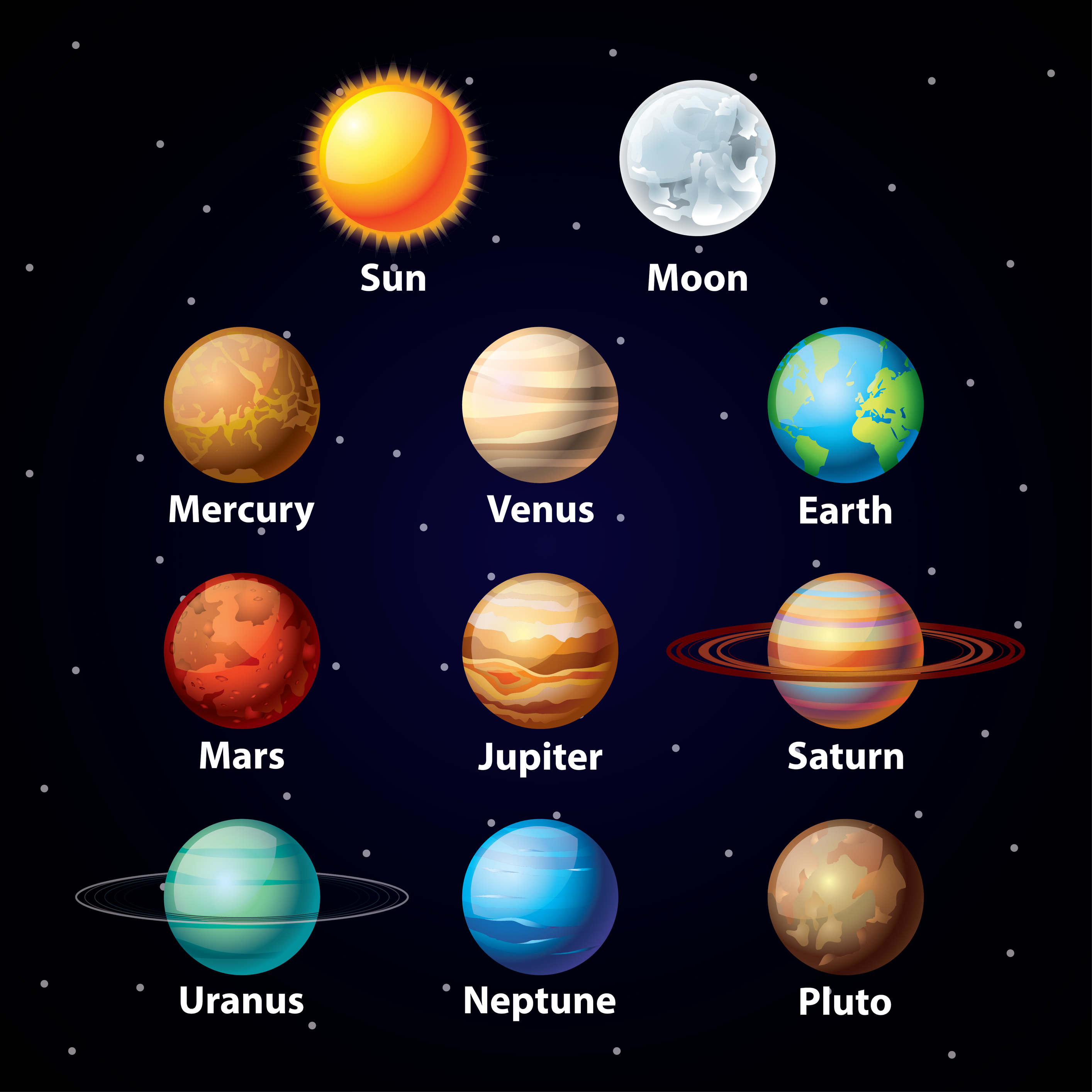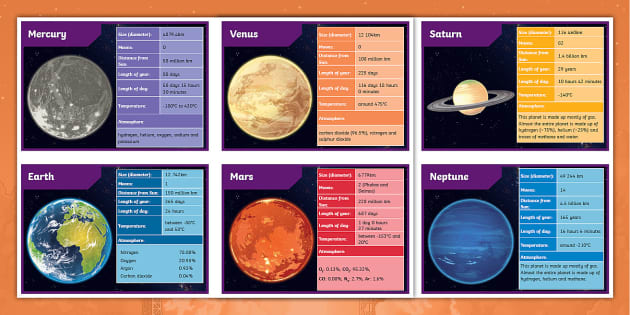Have you ever looked up at the night sky and wondered about the planets that share our solar system? You're not alone.
Our curiosity about these celestial neighbors has fueled countless discoveries and sparked imaginations for generations. But did you know there are surprising facts about planets that could change the way you view them? Imagine uncovering mysteries that could make you the most intriguing conversationalist at your next gathering or simply satisfy your inner curiosity.
You'll dive into fascinating truths about each planet, uncovering details that make each one unique and extraordinary. Ready to explore these cosmic wonders? Let's take a closer look at the facts that will captivate your mind and leave you wanting to learn even more.

Credit: kidspressmagazine.com
Planetary Formation
The Nebular Hypothesis explains how planets form. A giant cloud of gas and dust spins. This is called a nebula. It starts to shrink and gets hot. The center becomes a star, like the Sun. The rest of the dust spins around the star. Small pieces stick together. These pieces form larger objects, called planetesimals. Over time, these grow into planets.
In the accretion process, dust and rocks come together. They form bigger bodies. These bodies collide and stick. This makes them larger. Gravity helps them gather more material. Planets form over millions of years. Some grow big and become gas giants. Others stay rocky, like Earth. This process shapes the solar system.
Unique Features Of Planets
Venus has thick clouds of sulfuric acid. The atmosphere traps heat, making it very hot. Jupiter has a Great Red Spot, a giant storm. This storm has lasted for centuries. Mars has thin air with a lot of dust storms. These storms can cover the whole planet. Saturn's atmosphere is mostly hydrogen and helium. It has powerful winds and storms.
Mercury has many craters and is very hot during the day. Earth is the only planet with liquid water on its surface. Mars has the largest volcano called Olympus Mons. Jupiter has a surface made of gas, no solid ground. Saturn's rings are made of ice and rock.
Planetary Orbits And Rotations
Orbital Dynamics of planets are fascinating. Planets move around the sun. This movement is called an orbit. Each planet has its own path. Some orbits are circular. Others are oval-shaped. Planets travel at different speeds. This depends on their distance from the sun. Closer planets move faster. Farther planets move slower. Gravity keeps planets in orbit. Without gravity, planets would drift away. Each planet has a unique orbital pattern.
Axial Tilt and Seasons are important for climate. Planets spin on their axis. This tilt causes seasons. Earth has four seasons: spring, summer, fall, and winter. Other planets have different seasons. Some planets have extreme tilts. This results in harsh seasons. Some planets have little tilt. These planets have mild seasons. Axial tilt affects day and night length. Days can be long or short. This depends on how much a planet tilts.

Credit: www.twinkl.com
Exploration And Discoveries
Space missions have taught us a lot about planets. The Apollo missions were the first to land humans on the Moon. These missions helped scientists learn more about Earth's closest neighbor. The Voyager probes flew past distant planets, sending back amazing pictures. They revealed secrets of giant planets like Jupiter and Saturn. The Hubble Space Telescope has shown us stunning images of planets far away. It helped us see planets that orbit other stars. These missions opened a new world of knowledge and wonder.
Scientists keep discovering new things about planets. Rovers on Mars found signs of ancient water. This makes scientists think Mars might have once supported life. The Juno spacecraft is studying Jupiter. It looks at the planet's storms and its big red spot. The Kepler mission found many planets around other stars. Some of these planets might be like Earth. These findings help us understand more about our universe.
Mysteries And Theories
Planet X is a mysterious idea. Scientists believe it is hidden far away. Some think it affects other planets. Its existence is still debated. This planet is not seen yet. Many people wonder about it. They hope to discover it soon. The mystery continues.
Life on Other Planets fascinates everyone. Scientists search for signs of life. They study Mars and other planets. Some places might have water. Water is important for life. People imagine aliens living there. No proof exists yet. The search goes on. Many questions remain unanswered.

Credit: www.pinterest.com
Impact On Culture And Science
Planets have always amazed people. Many stories come from their presence in the sky. Ancient people created myths about them. Each planet got linked to a god or hero. In astrology, planets are believed to guide us. They influence our lives and futures. People still read horoscopes today. These stories make planets feel magical and powerful.
Scientists study planets to learn about space. Telescopes help them see planets better. They discover new things all the time. Space missions explore planets like Mars and Jupiter. These missions bring back lots of data. This helps us understand the universe. Planets teach us about Earth's place in space. They show us the possibilities beyond our world.
Frequently Asked Questions
What Are 10 Facts About Planets?
Mercury is the closest planet to the Sun. Venus has a toxic atmosphere. Earth supports life. Mars is known as the Red Planet. Jupiter is the largest planet. Saturn has stunning rings. Uranus rotates sideways. Neptune is the farthest planet.
Pluto is a dwarf planet. Exoplanets exist outside our solar system.
What Are 20 Facts About Space?
Space is vast, with billions of galaxies. Black holes have intense gravitational pull. Stars are born in nebulae. The universe is 13. 8 billion years old. Light travels at 299,792 kilometers per second. The sun is a star. Mars has two moons.
The Milky Way is our galaxy. Space is silent.
What Are 3 Interesting Facts About The Planet?
Earth has a unique atmosphere that supports life, unlike any other known planet. It rotates on its axis every 24 hours, creating day and night. Earth's surface is 71% water, making it the only planet with extensive liquid water, crucial for sustaining life.
What Are Some Facts About The 8 Planets In Order?
Mercury is the closest to the sun and has extreme temperatures. Venus is hot and has a thick atmosphere. Earth supports life with water and oxygen. Mars is red due to iron oxide. Jupiter is the largest planet. Saturn has iconic rings.
Uranus rotates sideways. Neptune is cold and windy.
Conclusion
Exploring planets fills us with wonder. Each planet holds unique mysteries. From Mercury's swift orbit to Neptune's distant chill. Our solar system offers endless knowledge and adventure. Studying planets helps us understand the universe better. It also reveals Earth's special place.
The vastness of space invites us to learn more. With each discovery, our curiosity grows. The planets are neighbors in our cosmic backyard. They remind us of the grand scale of the universe. Keep looking up and asking questions. The journey through space is just beginning.
.png)






0 Comments